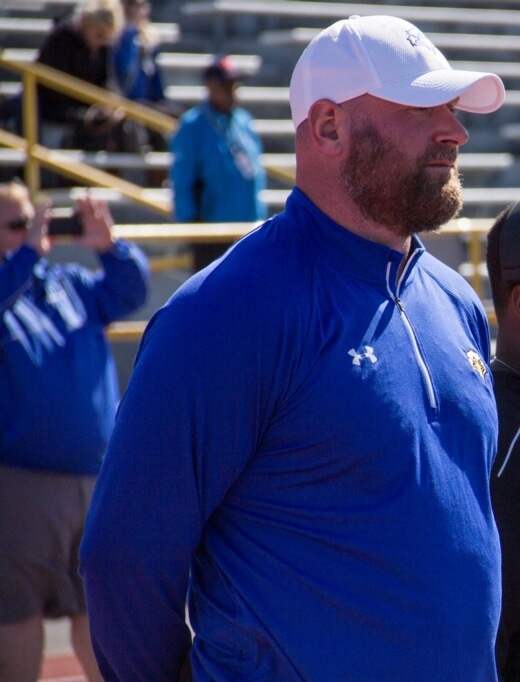
This is something that just popped into my head after thinking about summer training. My job is to write programs and make sure the kids perform exercises correctly so they don't get hurt. The unwritten parts, to me, are teaching them about life, about winning and about taking control of what they can control.
If you have any clue about athletics you know that coach led teams aren't very good. If the majority of leadership has to come from coaches that's usually the sign of a rough season ahead. In my experience, I've found this 100% true.
When ALL of the correction comes from the coaches it's a sign of bad player leadership. Part of what I try to do is to take control early in the process and get them going on the right path. I explain it using the old saying, "You can lead a horse to water..." I don't even lead them to water. I simply show them where the water is and in essence, lay out the path. Truly, it's up to them whether or not they want to follow it.
From some reading I've done on USMC Special Operations (MARSOC) officer leadership this is called "leading from behind." All I do is show them the way and then make sure they stay on track.
Backtrack a bit:
- Leading from the front: this is like yelling "charge" and attacking with the front line troops. Well, I don't play anymore. I won't be on the field/court so this makes little sense.
- Leading from the middle: this is kind of like leading from the front and leading from behind all at once. Basically, you stay out of the way, but jump in when things look like they might take a turn for the worse.
- Leading from behind: show the way and get the hell out of their way.
In the weight room, I definitely lead from the front for the first week - kind of. I lay everything out very clearly. Explain exactly how things will go and make sure they completly understand expectations etc.. Very quickly this changes to leading from the middle. At this point I'm just making sure they're staying on task and on pace. Very quickly, again, this turns into me staying the hell out their way and letting them train. If I do a great job of setting the tone and expectations in week 1 I'm out of their way by the end of week 3 at the latest.
Different teams respond differently, but by the middle of the training cycle (3-4 weeks into a 6-8 week cycle, which is usually the longest uninterrupted time I get with a team) they handle their business well.
Where I usually notice good leadership or lack of leadership is in the details. How do they handle conditioning? When they get called back for not running through line or not starting behind the line, who calls them out? Is it ALWAYS me or do their teammates start taking control? On the good teams I've been a part of MOST of this comes from teammates. Guys will call each other out and all I have to do is tell them what the drill is and blow the whistle (metaphorically speaking - I don't use a whistle).
When guys don't police themselves, when guys piss and moan when they get called out by me, a bad season is sure to follow.
Now, I've read a whole bunch of stuff on leadership. There are a lot of people that say leaders are developed. I believe this to be true, but only to a point. If a kid doesn't have "it" he probably never will. If you have seniors who are more worried about being buddies with everyone, who are afraid to step on some toes, who are afraid to be the bad guy by nature, they probably won't ever change.
Maybe I suck teaching this stuff? I always have to look at myself first. Ultimately, coaches have no say in whether a team wins or loses. I believe this. Coaches don't play. Coaches don't execute the game plan. Players do. A bad game plan executed to perfection is a great game plan. Players can make bad coaches look good.
As I see it, coaches have to lay out a solid plan for success.
- Here's what we need to do (in depth)
- Here's how we're going to do it (in depth)
- Keep the players on track
- Hope like hell there are some kids that take control
- If kids take control, stay the hell out of their way unless you absolutely need to step in
Not sure if this is good advice, but it's what I try to do every year. I've seen it work and I've seen it fail. That's why it's a constant work in progress, but I think it's a good start.
Players win games. Players lose games.








